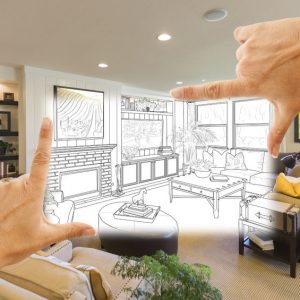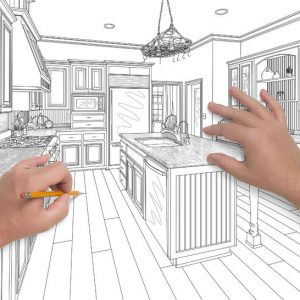
What is Residential Universal Design?
Residential Universal Design is a powerful approach to creating living environments that are accessible, safe, and comfortable for everyone, regardless of age or ability. This elective class empowers a wide range of professionals and others to apply universal design principles in residential settings, helping clients, families, and the public “age in place” with greater ease and independence
Who Should Attend This Universal Design Course?
This 4-hour, online, real-time, interactive distance-learning course is specifically designed for professionals dedicated to enhancing home accessibility and functionality.
If you’re looking to expand on your CAPS coursework or gain a deeper understanding of inclusive home design, this class is for you. Ideal participants include:
- Occupational Therapists (OTs), Physical Therapists (PTs), and Speech and Language Pathologists
- Interior Designers, Home Stagers, and Real Estate Agents
- Case Managers, Move Managers, Ergonomists, and Social Workers
- Remodelers, Architects, and Home Builders
- Mobility Equipment Suppliers and Accessibility Specialists
- Anyone interested in aging in place services and creating accessible home environments.
While there’s no prerequisite, completing the CAPS designation program is recommended to fully leverage the course material. Non-CAPS professionals are also welcome to attend and will find immense value
Course Benefits & Learning Objectives
This engaging, live Zoom class features expert instruction from Master CAPS Instructor and AOTA Approved Provider, Steve Hoffacker. You’ll have the opportunity to ask questions, engage, and participate actively throughout the program.
By the end of this course, you will be able to:
- Understand Universal Design Concepts: Grasp how universal design principles impact residential spaces and facilitate unrestricted use of living areas
- Apply Universal Design in Homes: Learn how universal design allows people to access and use their homes more easily
- Distinguish Key Design Concepts: Compare universal design with ADA requirements and contrast it with visitability
- Identify Beneficial Home Areas: Pinpoint major areas within a home where universal design concepts are most impactful
- Implement Low-Budget Solutions: Discover four practical, low-budget universal design features that can enhance any home
- Enhance Home Safety: Relate universal design features directly to improving safety within the home environment
Continuing Education Credits & Registration Information
This continuing education course provides 4 Contact Hours (0.4 CEUs) upon successful completion. CE credits are provided for:
- AOTA (American Occupational Therapy Association) – Course Approval #10605
- APTA (American Physical Therapy Association)
- NAHB/CAPS (National Association of Home Builders/Certified Aging-in-Place Specialist)
- AIBD (American Institute of Building Design)
- NKBA (National Kitchen and Bath Association)
- Other programs or organizations that allow self-reporting
This introductory-level course is a Category One, Occupational Therapy Service Delivery activity, exploring opportunities for therapists to leverage CAPS training for non-clinical home services
Registration Details:
- Live Online Class: This is a live Zoom, synchronous, interactive, distance learning class with PowerPoint. It is not self-paced or pre-recorded.
- Flexible Registration: You may request to move your registration to another date without penalty. Please note, there are no refunds provided.
- Accessibility: If you require any assistance to participate in the online sessions, please notify us when you register so we can accommodate your needs.
- Multiple Registrations: Please use a separate checkout for each person being registered.
- Email List: You agree to be added to Steve Hoffacker’s email contact list to receive updates.
Meet Your Instructor: Steve Hoffacker
Steve Hoffacker CAPS, Steve Hoffacker LLC, is an AOTA Approved Provider of professional development. Steve is a Master CAPS Instructor, also well-versed in universal design and visitability, with no financial interest in any outside organizations or compensation from brand names mentioned in the course, ensuring unbiased and valuable content
Course Agenda
The program follows a clear and comprehensive agenda:
- Section 1: Introduction
- Section 2: Understanding Universal Design Concepts
- Section 3: Relating Universal Design To ADA & Abilities
- Section 4: Using Universal Design Treatments Effectively
- Section 5: Conclusion
- Questions / Post-Course Evaluation
Successful Course Completion
To successfully complete the course, you must attend the entire event, actively participate in activities and discussions, have an active camera, and achieve a 70% passing score on the in-class knowledge/skill check questions.
Limited Class Sizes
Class sizes are intentionally kept small to maintain an interactive format and ensure all questions can be answered. Registration may close once the optimal class size is reached, but several additional offerings of this class are available.





